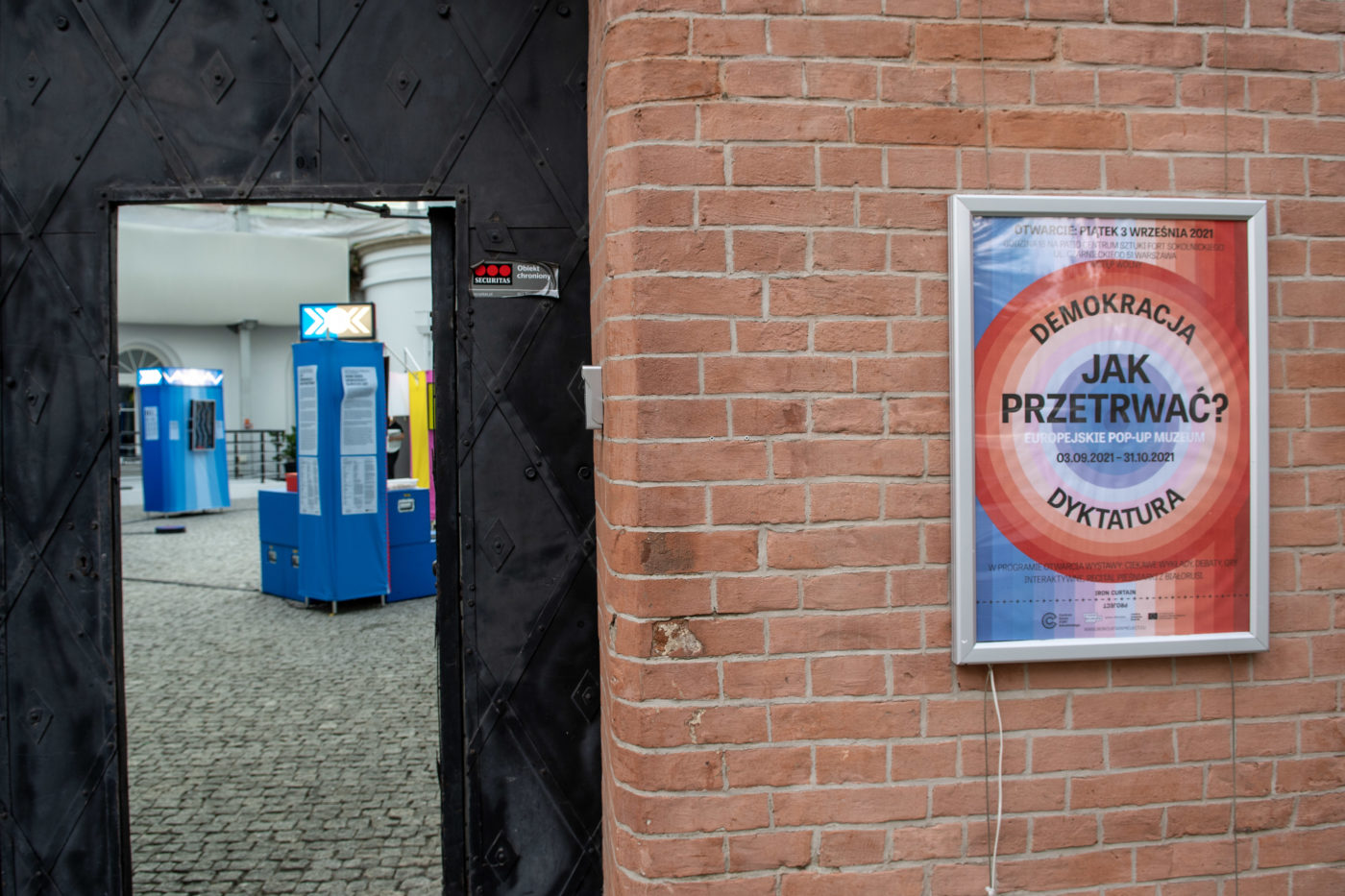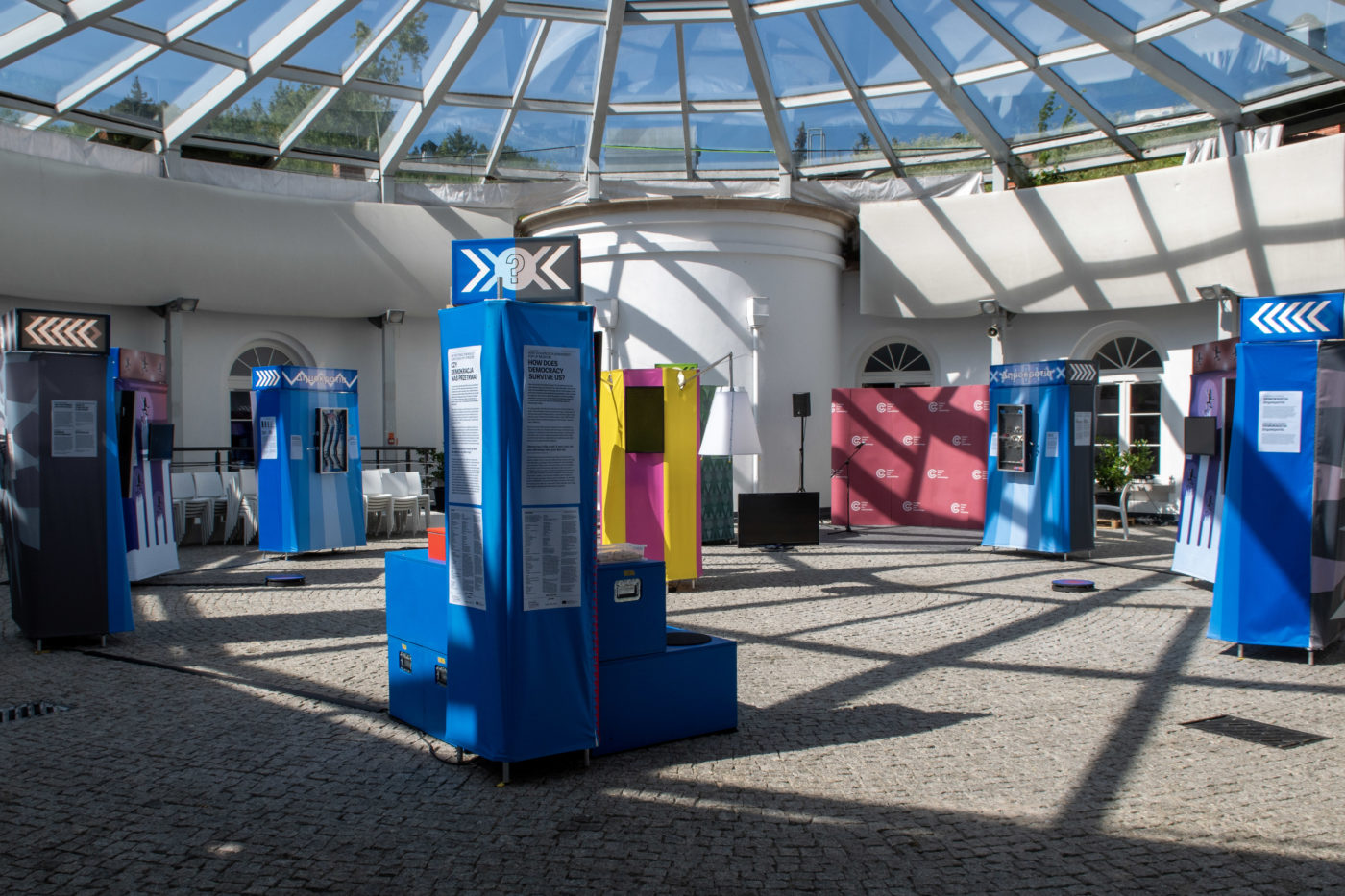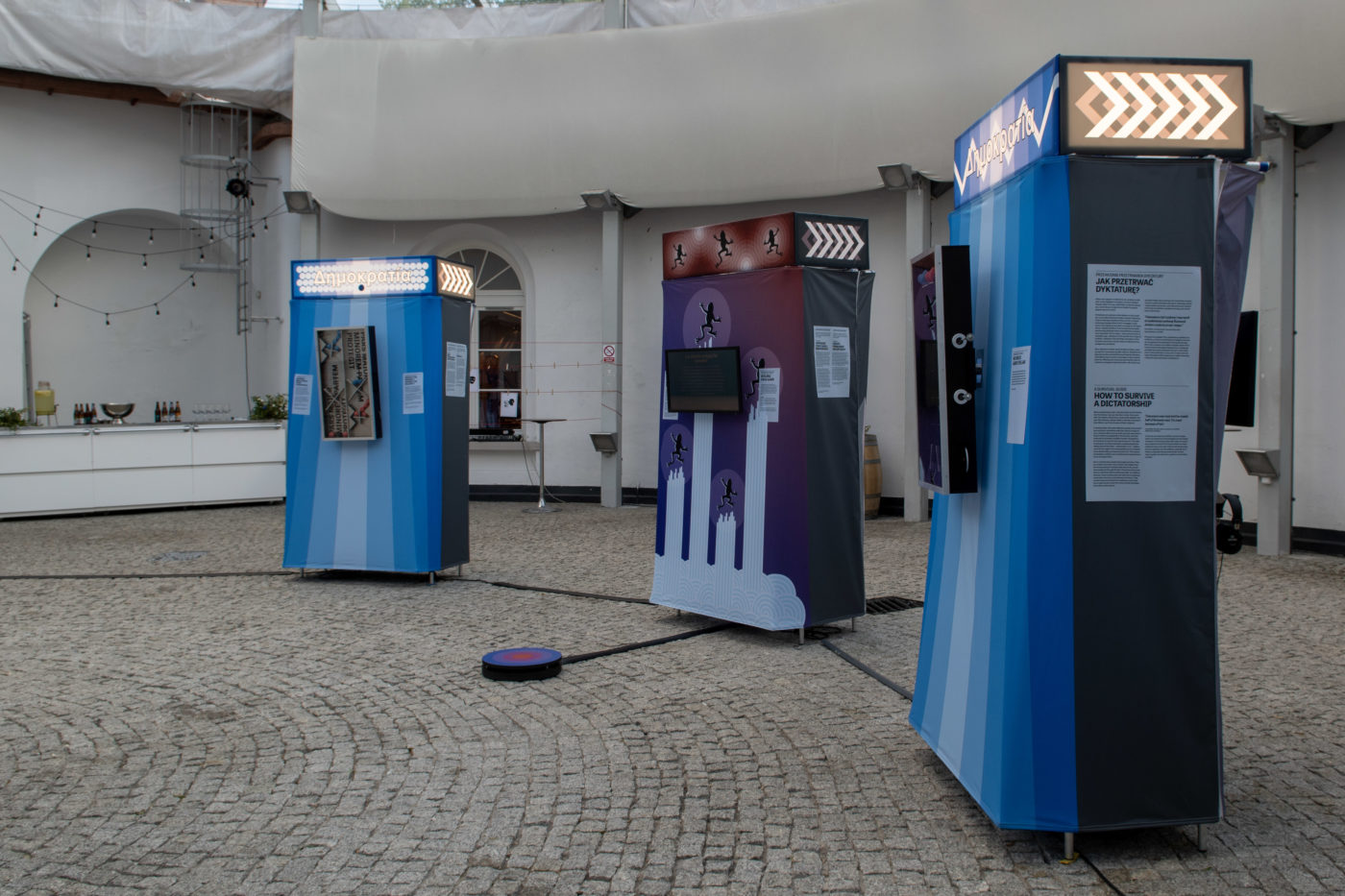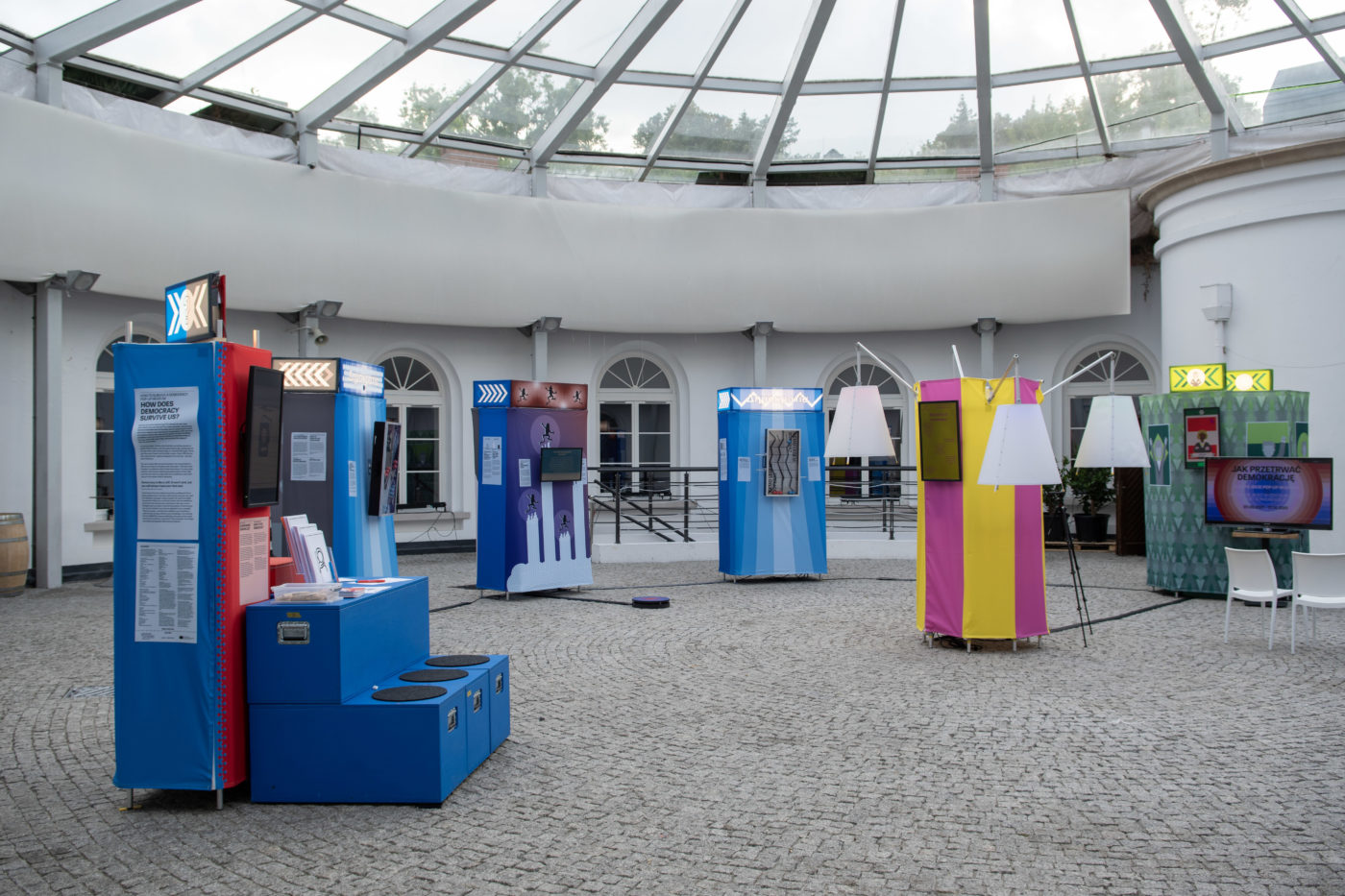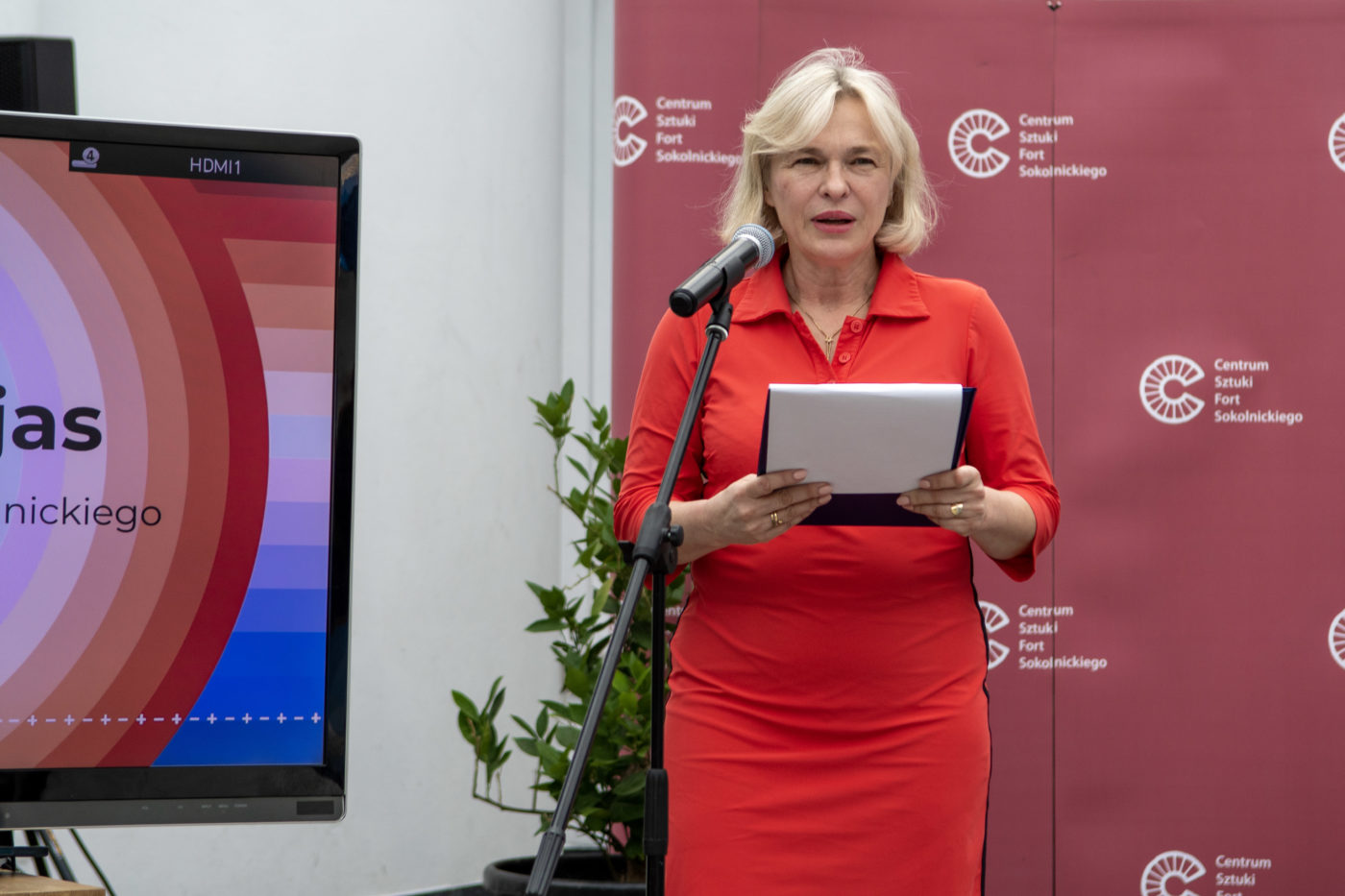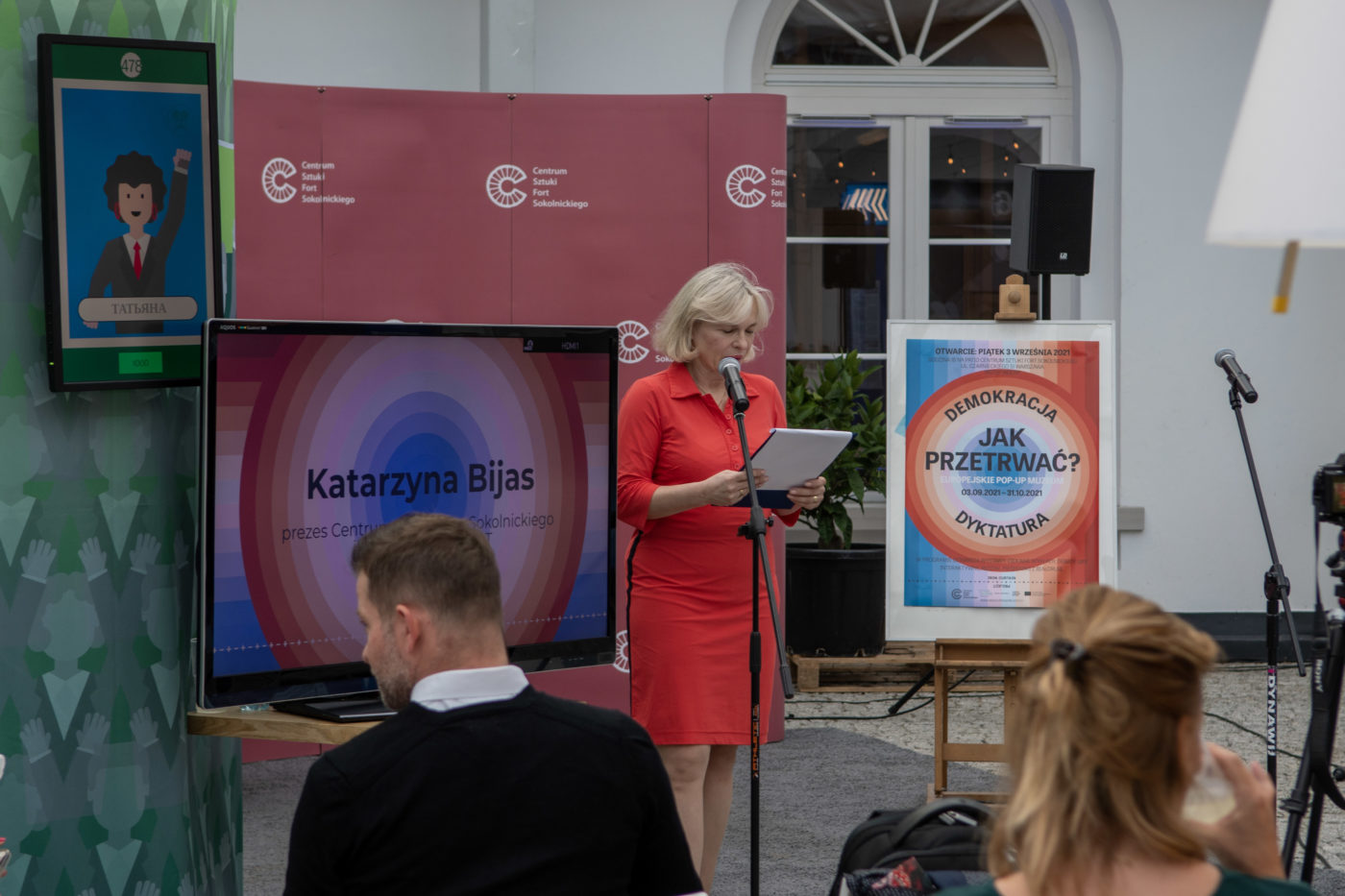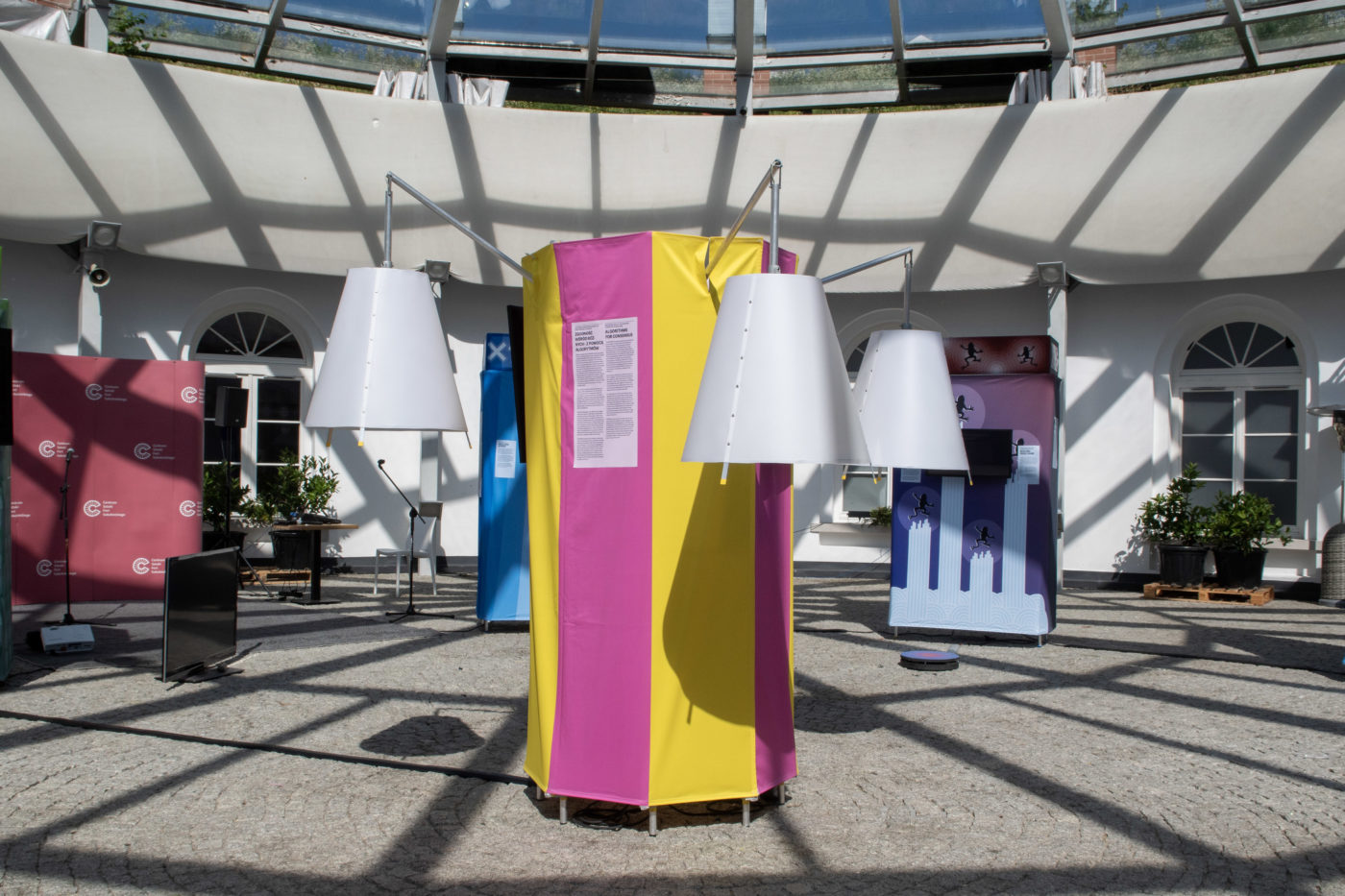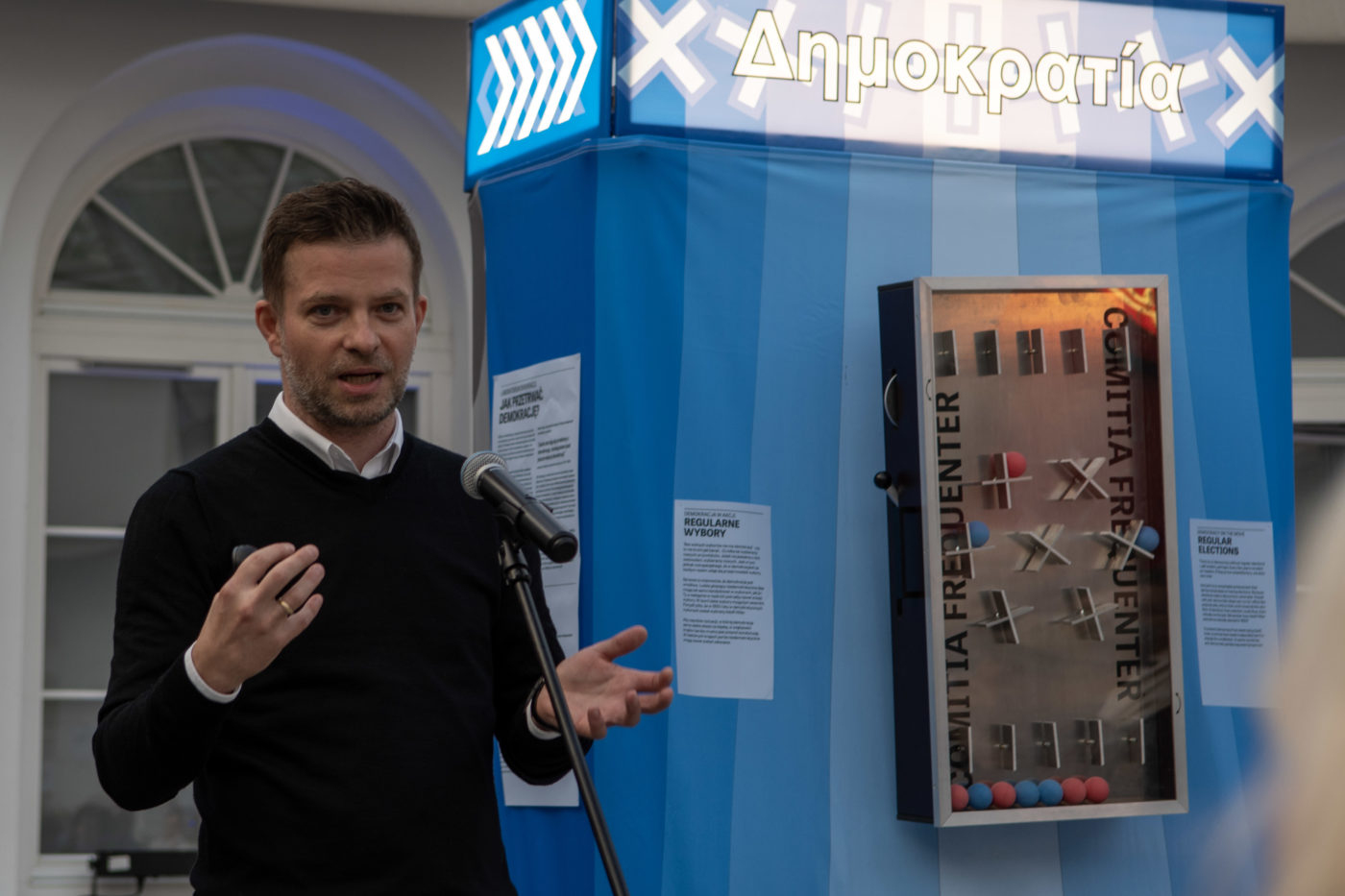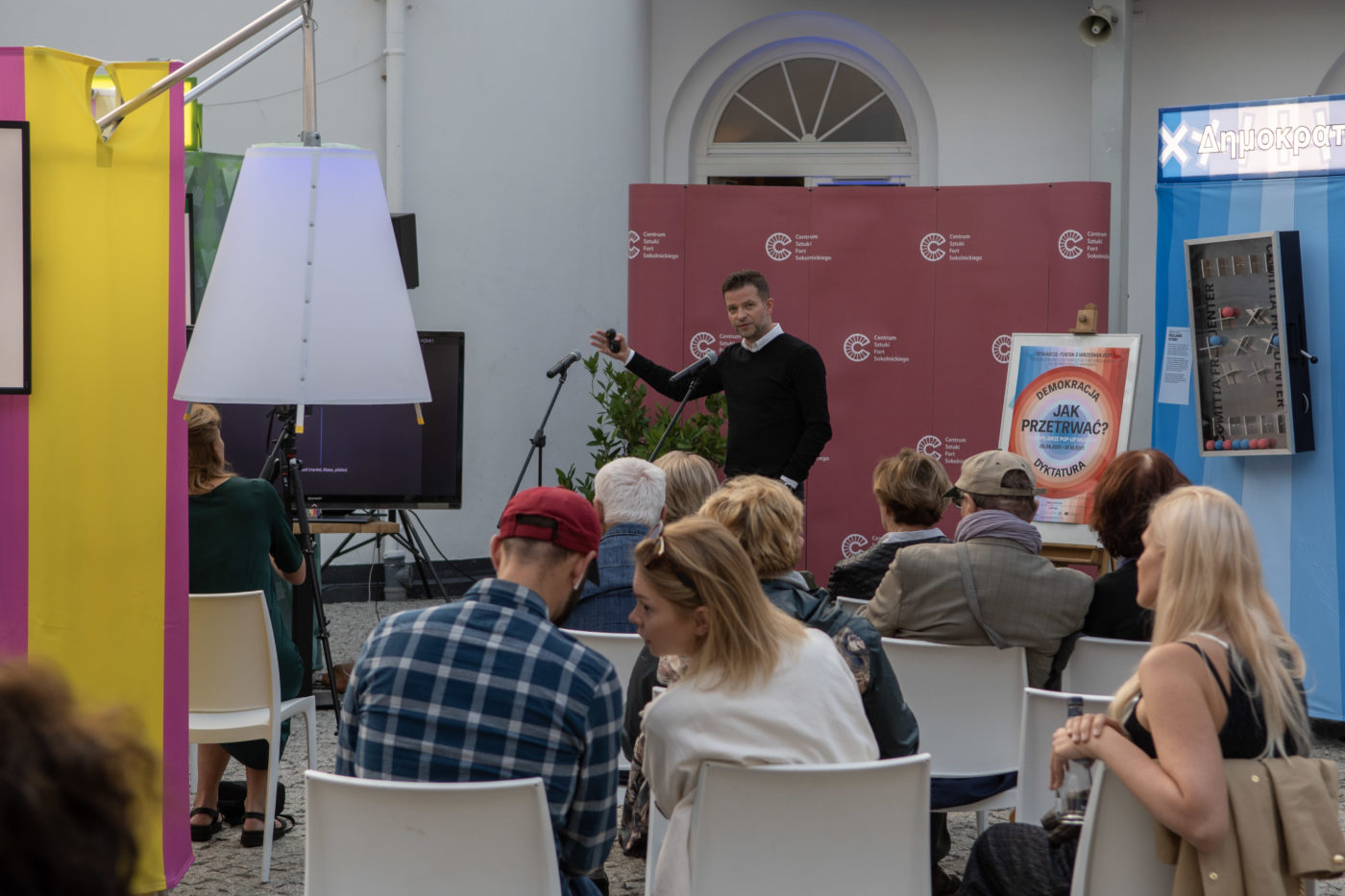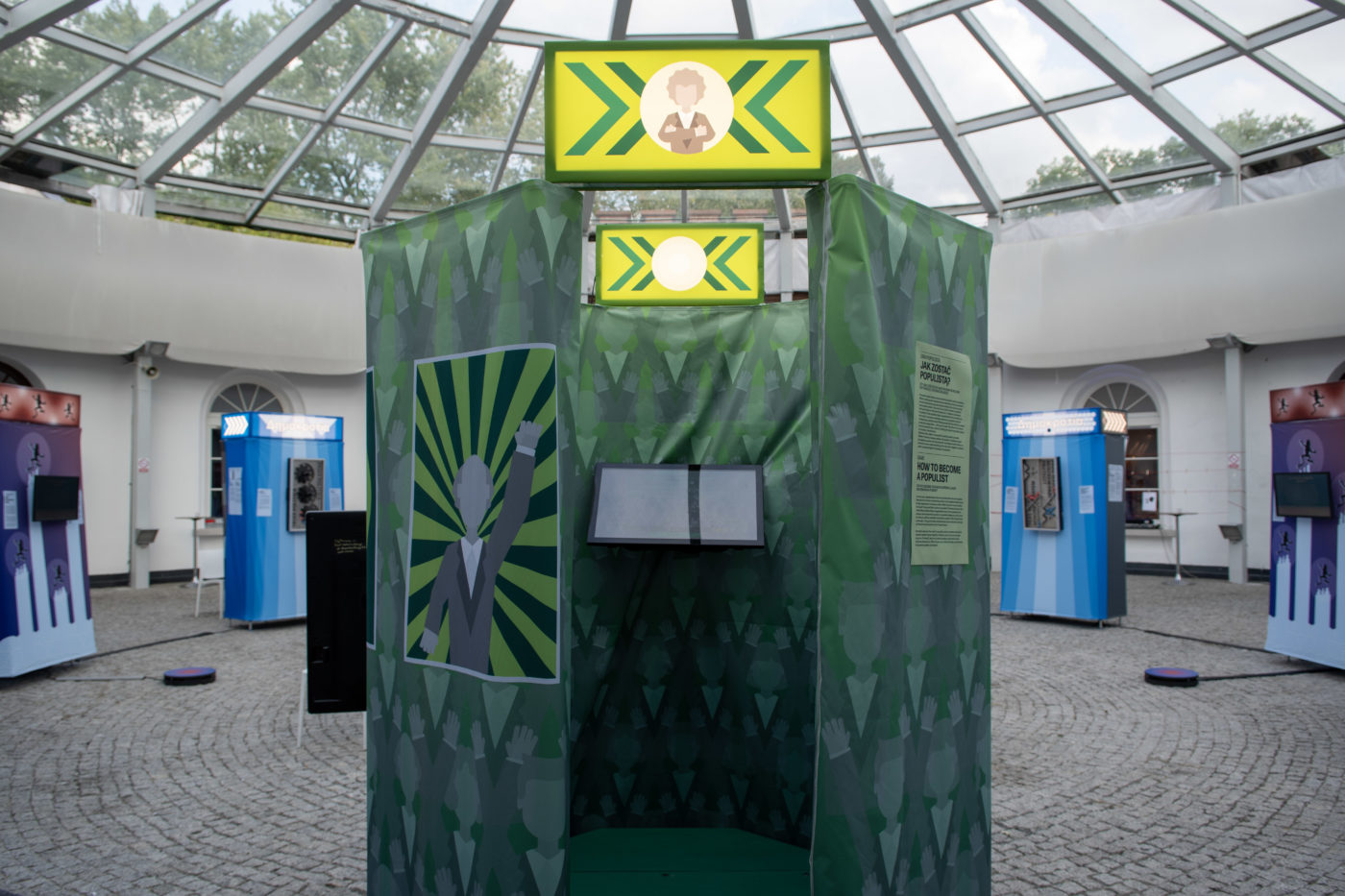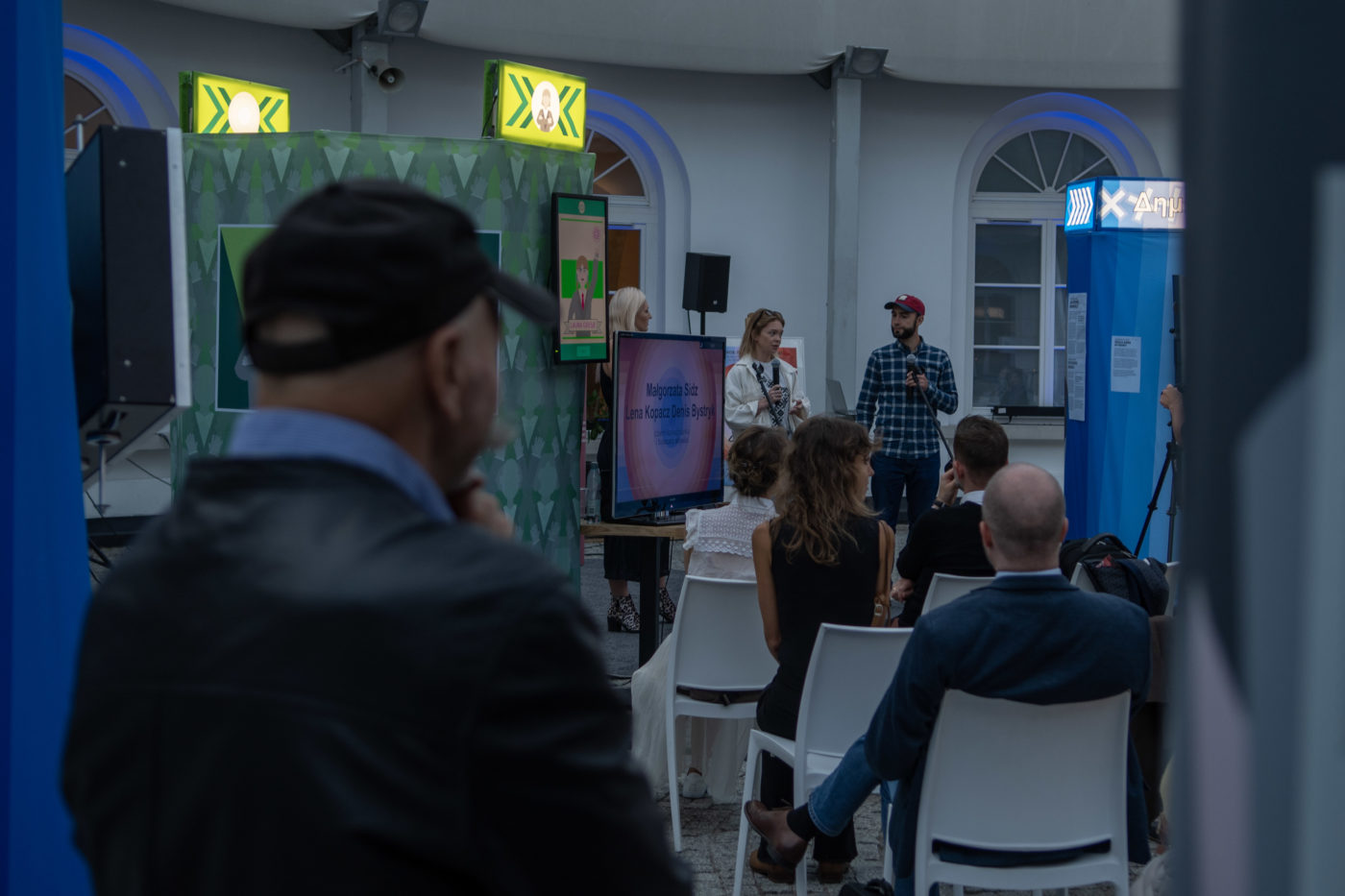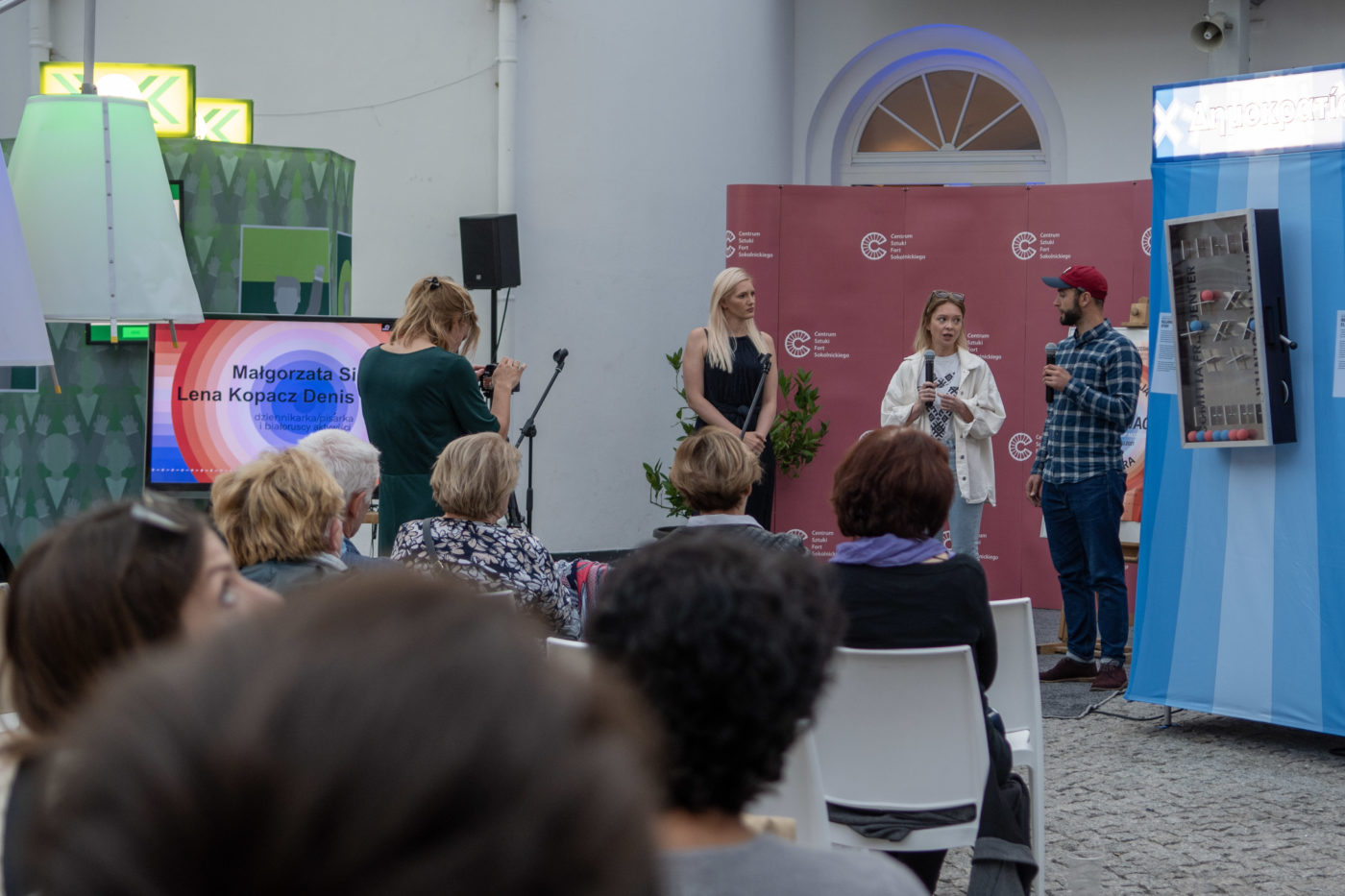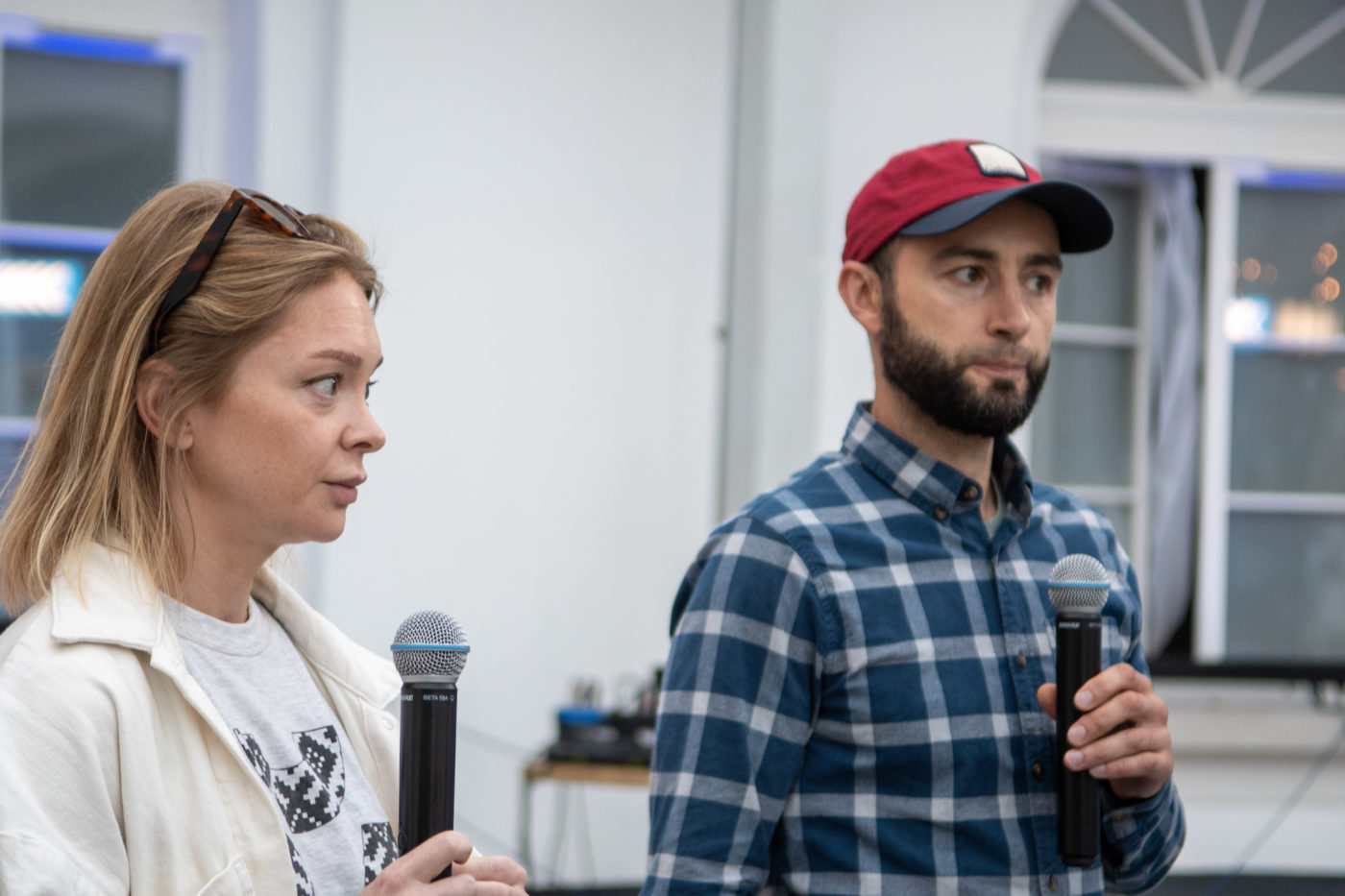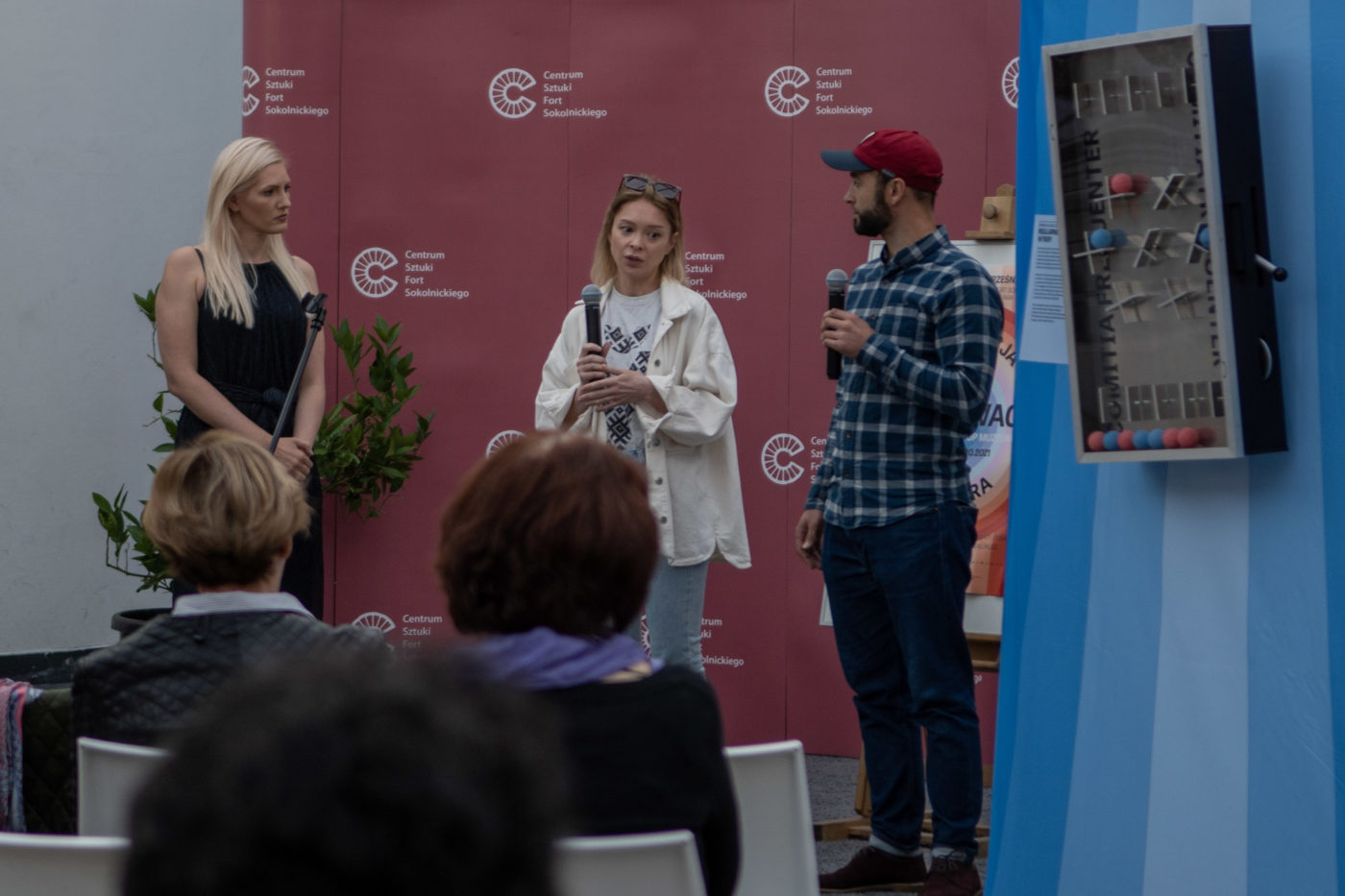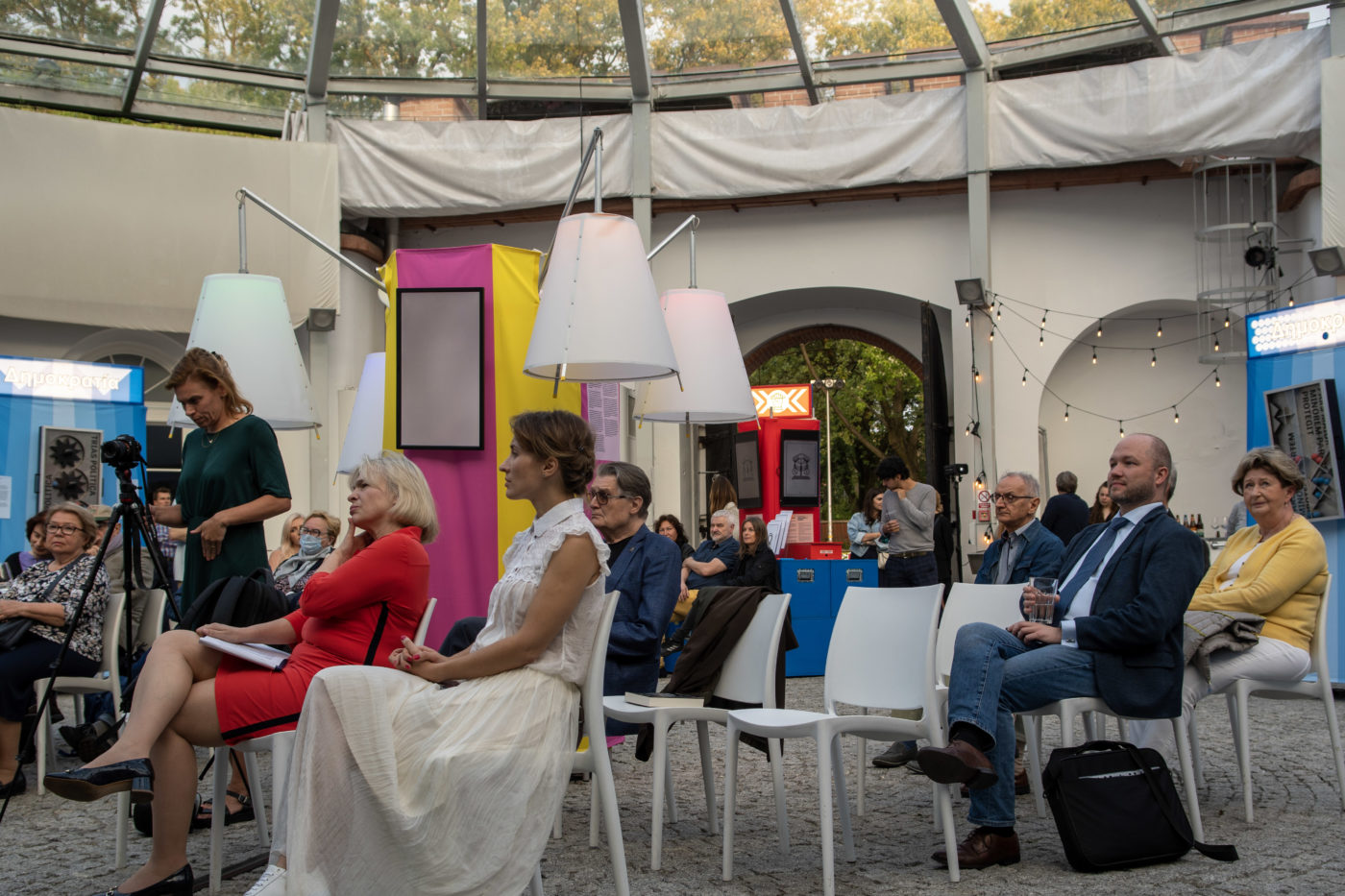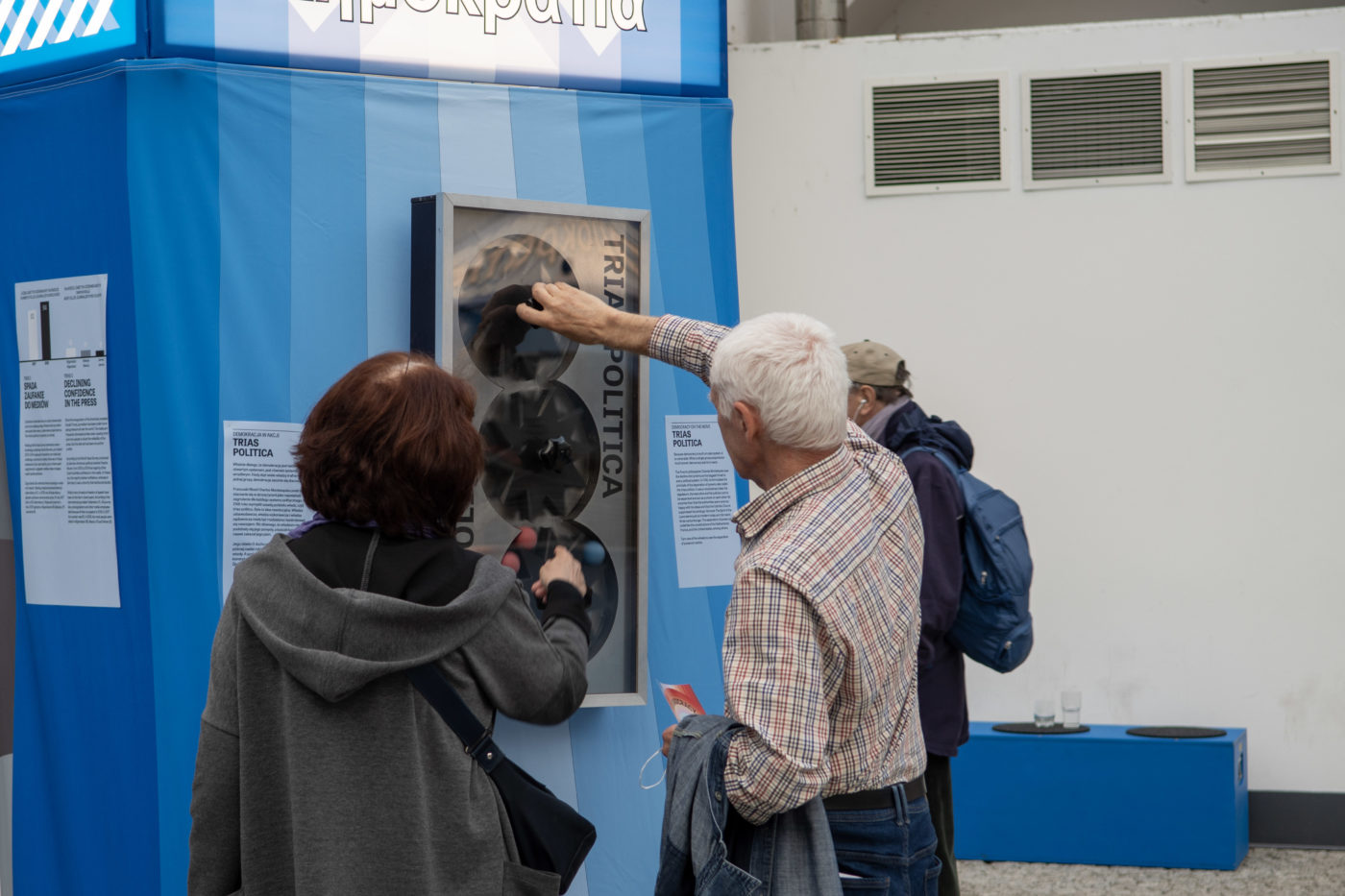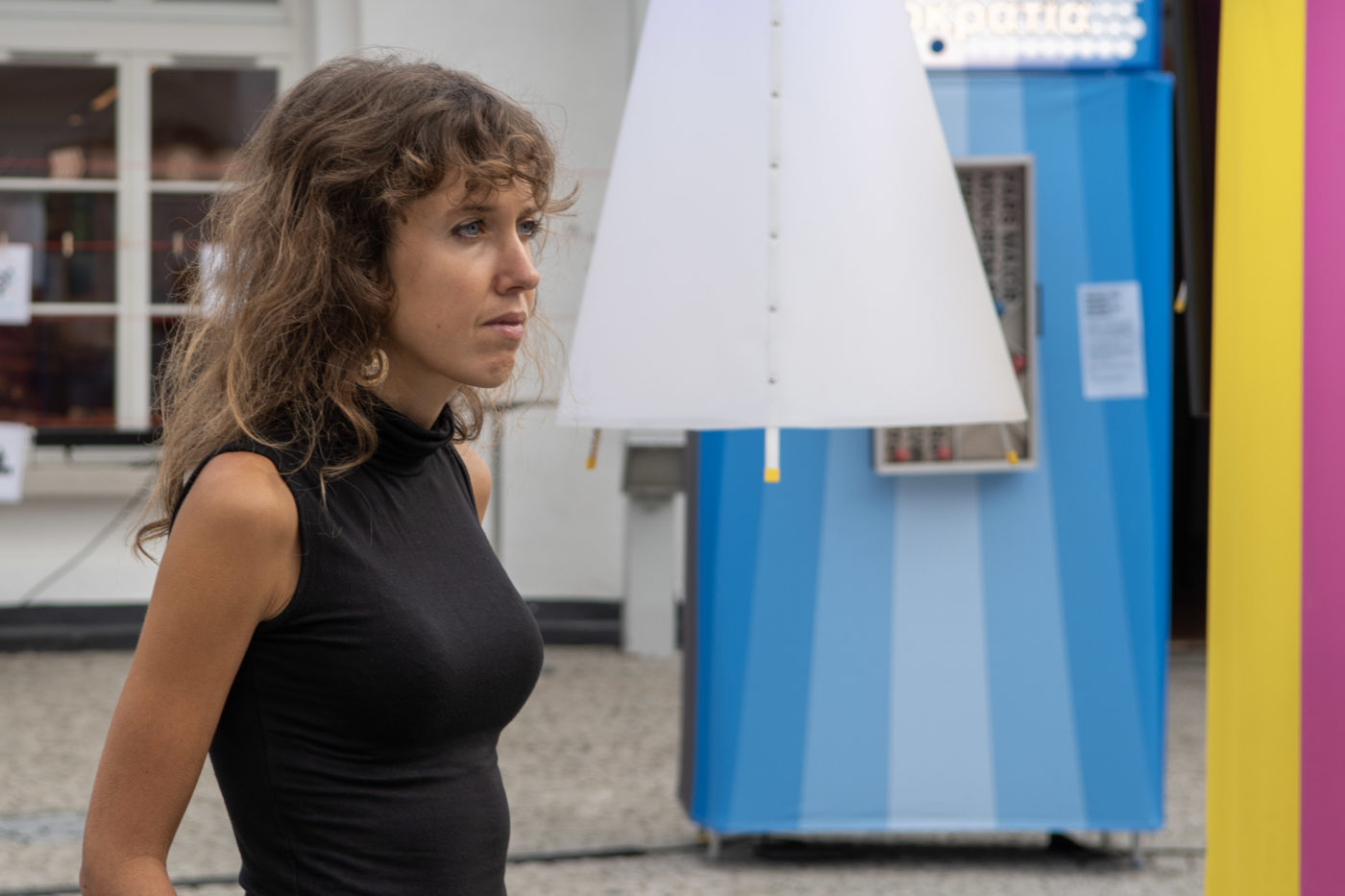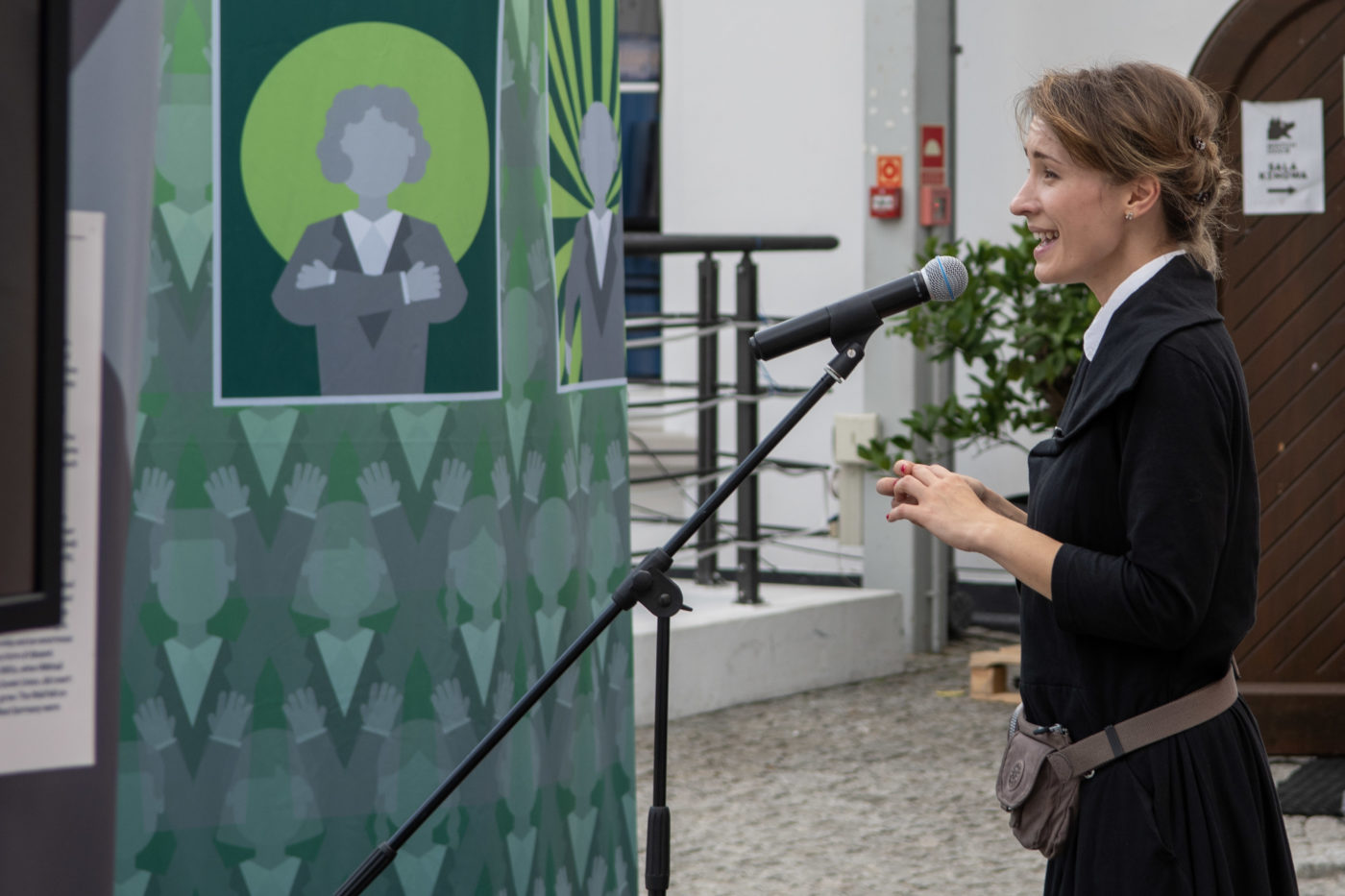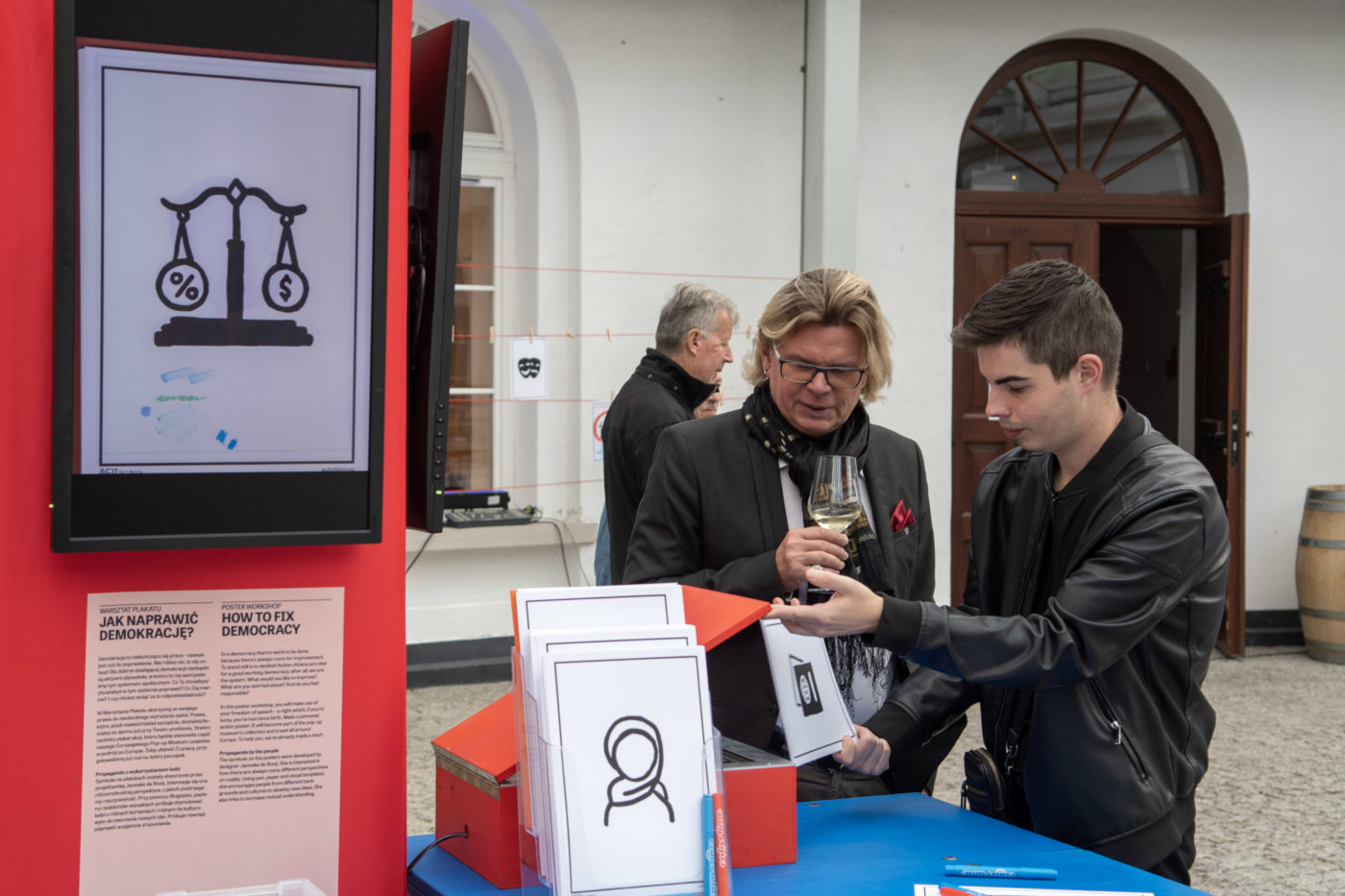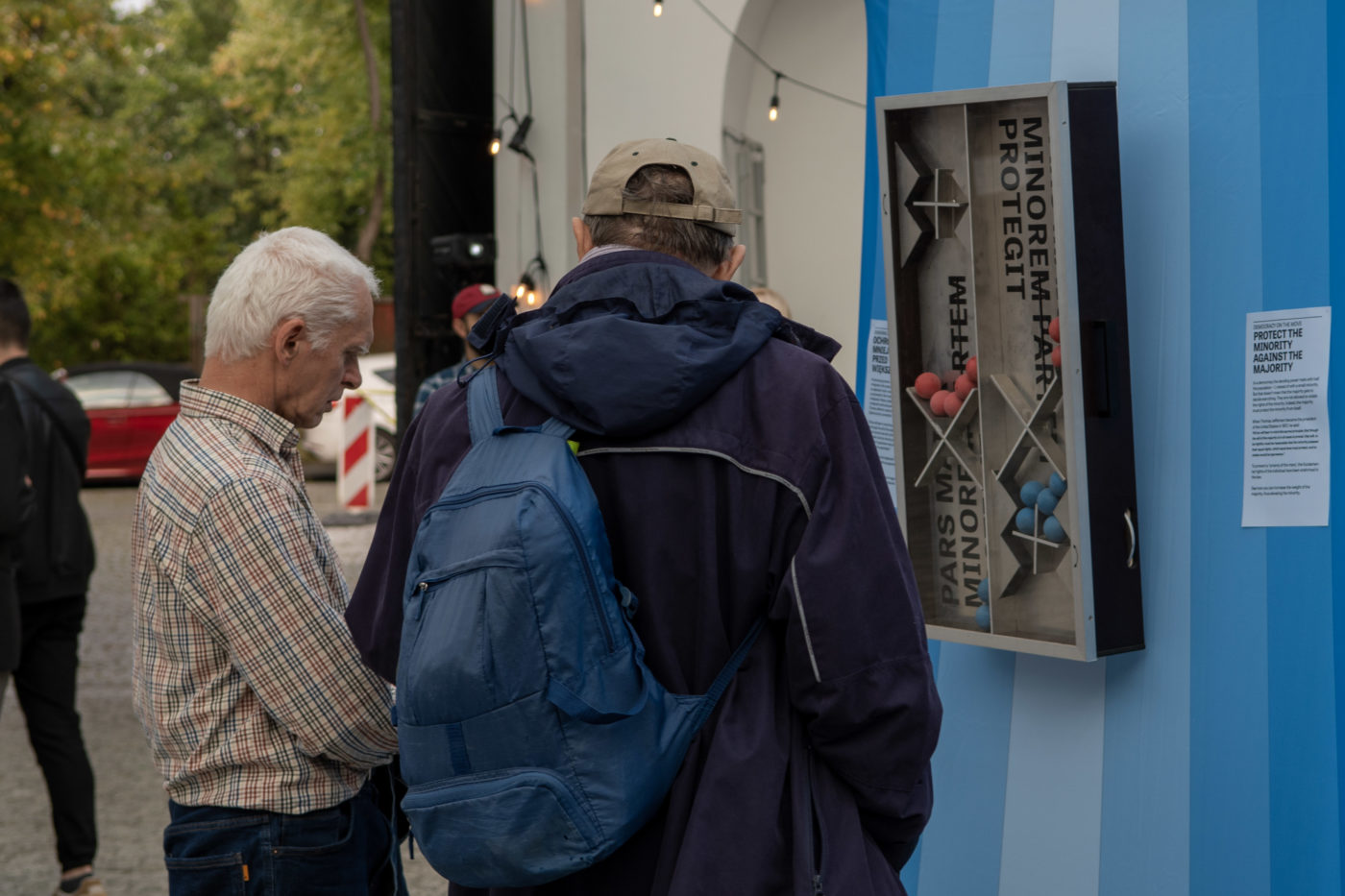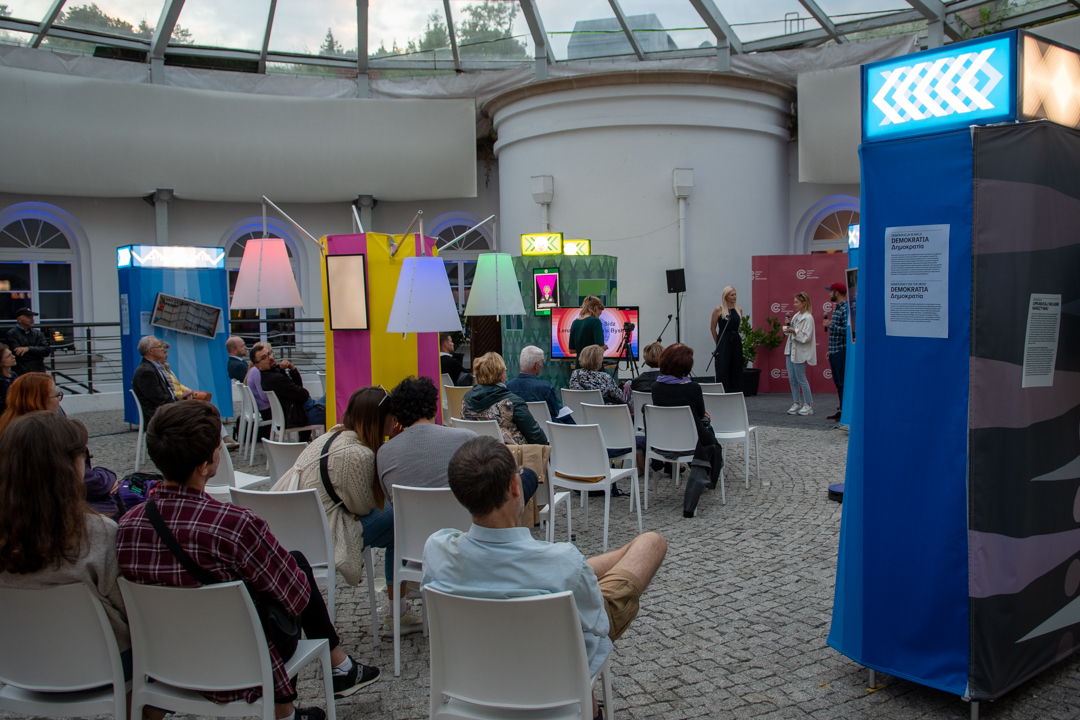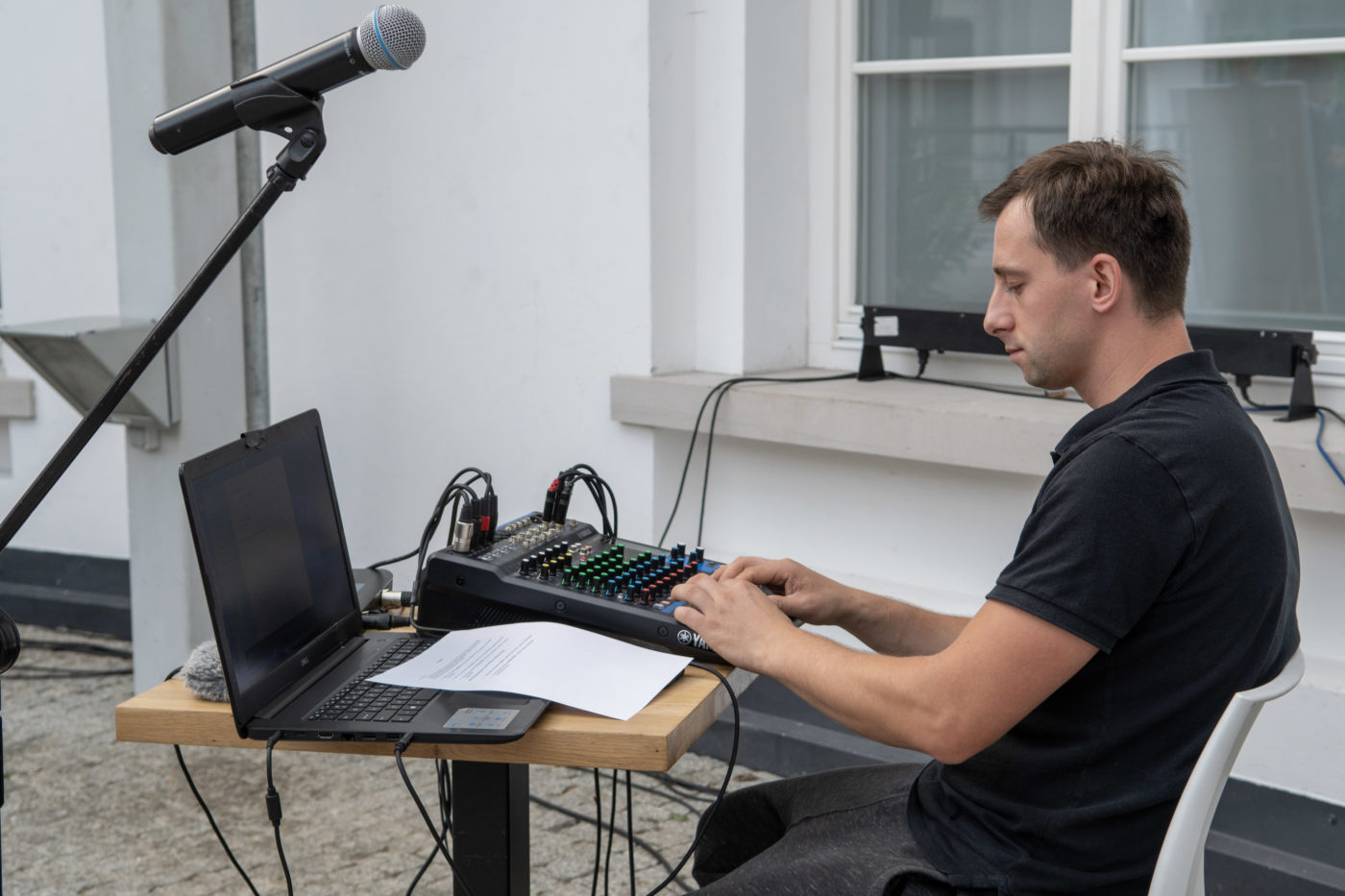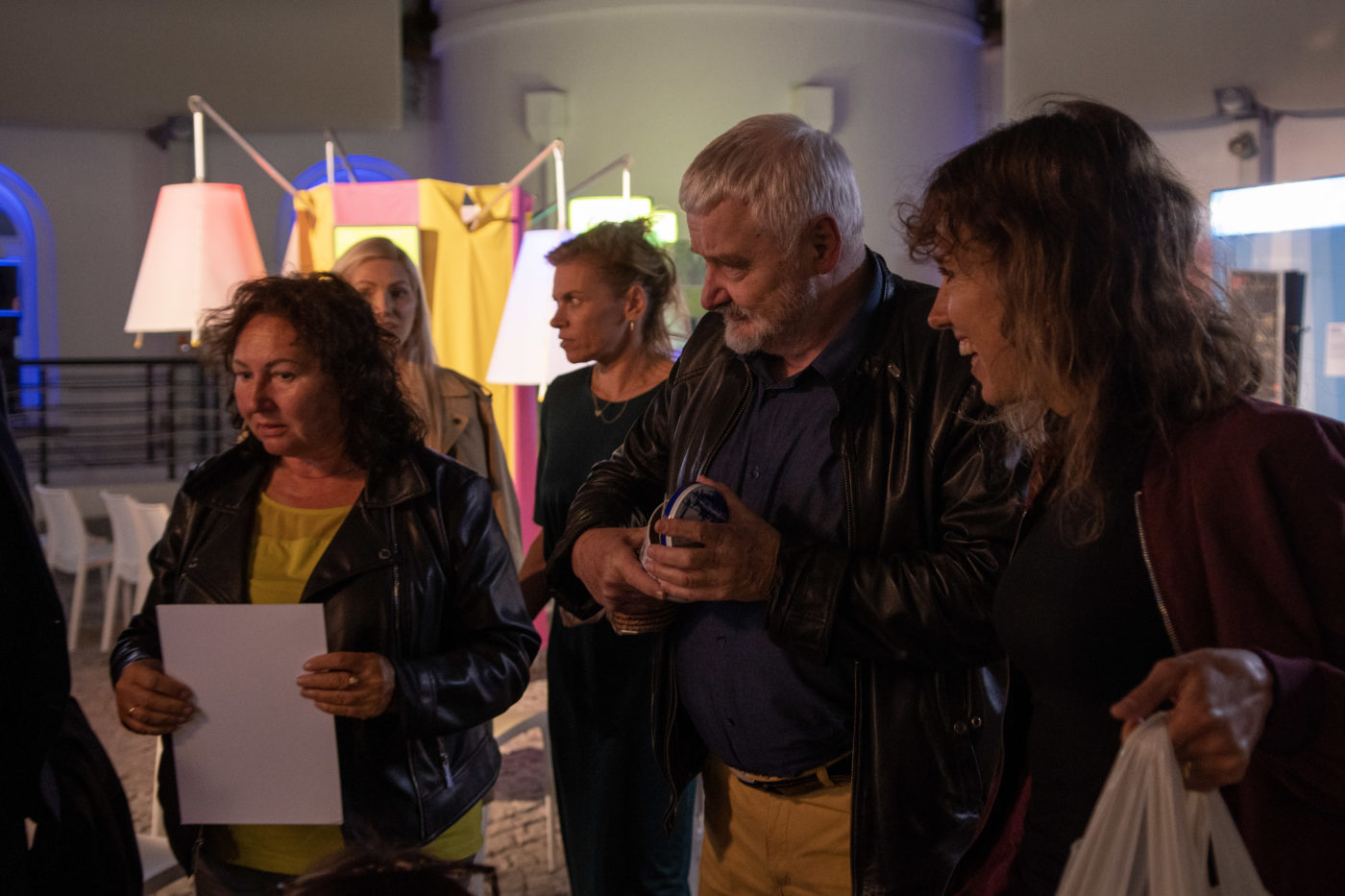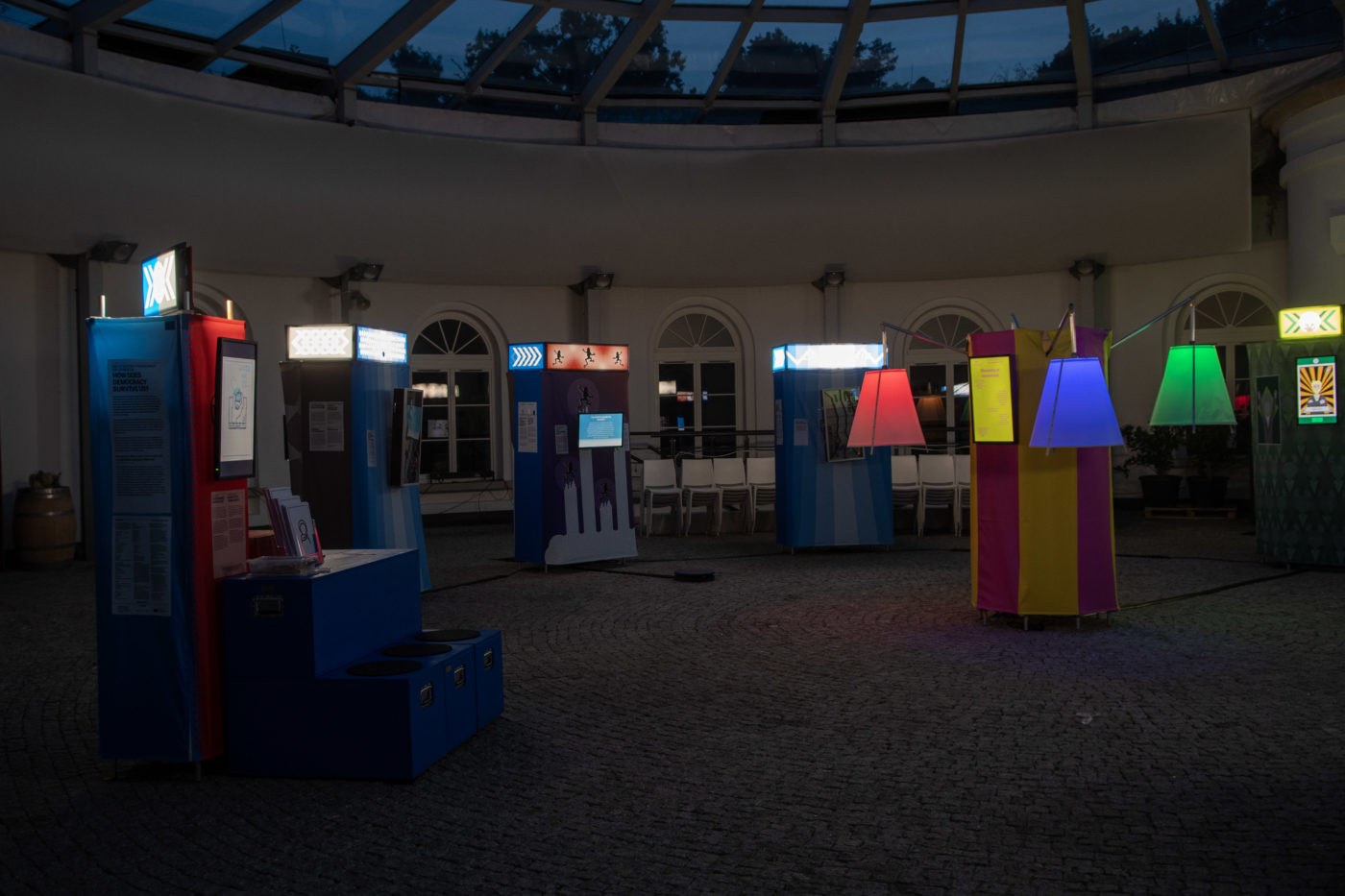Since the fall of the Berlin Wall in 1989, democracy seems to be a fact everywhere in Europe. But today, that hard-won democracy is under pressure. The How to Survive a Democracy Pop-up Museum invites visitors to explore and discuss the values of democracy through interactive games, video portraits and art installations.
For two months, until October 30, the pop-up museum will be on show at a very special place: Nowy Fort is a meeting place for art, culture, and debate, located in a beautiful nineteenth century former fortress, in the middle of Warsaw. In September and October, How to Survive a Democracy also hosts workshops and debates in collaboration with secondary schools.
The festive opening programme started with populism expert Professor Artur Lipiński from the Poznan University. Het told us what populism actually is, and how to recognise a populist. In the pop-up museum visitors can test whether they would be a 'good populist' themselves.
Can you feel democracy? Psychologist Jacec Jakubowski explained why empathy is crucial for democracy and what role emotions play in it. The Belarusian artist Nasta Nierkasawa proved that democracy is indeed a matter of feelings, when she moved the public to tears with her songs about desire for democracy. The Belarusian activists Lena Kopacz en Denis Bystryk spoke with journalist and writer Malgorzata Sidz about the raw reality of everyday life in a dictatorship. Socioloog Jacub Wygnański brought back some hope, as he came up with ideas for new forms of democracy.
Afterwards, we played the Boiling Frog Game together to test whether we notice when our freedom is taken away from us. Most participants agreed they surely don't want to be like frogs in a slowly heated pan - sitting still and doing nothing until it's too late.
POP-UP MUSEUM ON YOUR EVENT?
The How to Survive a Democracy pop-up museum travels around Europe. Do you want to show the exhibition at your event or location? That’s possible! The installation fits in very different spaces, it can be of large and smaller construction. For example, it is very suitable for display during long-term festivals in semi-public spaces. The games and videos are interesting for a very wide audience with ages from 12 to 100 years. Because the exhibition provokes discussion, we also offer an in-depth program of workshops and teaching programs. View the full program here.
Interested? Contact us for availability and costs: info@ironcurtainproject.eu
